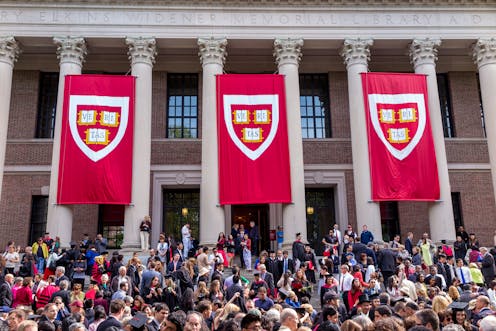Harvard students and DOJ will find answers elusive in quest to learn about admissions decisions
- Written by Natasha Warikoo, Associate Professor of Education, Harvard University
 More and more students at Harvard are examining their admission files to try to understand how they got in. The U.S. government is also plans to examine the files as part of a discrimination case filed by 63 Asian- American groups.Shutterstock.com
More and more students at Harvard are examining their admission files to try to understand how they got in. The U.S. government is also plans to examine the files as part of a discrimination case filed by 63 Asian- American groups.Shutterstock.comAfter weeks of negotiation, Harvard University recently agreed to provide the Department of Justice...

